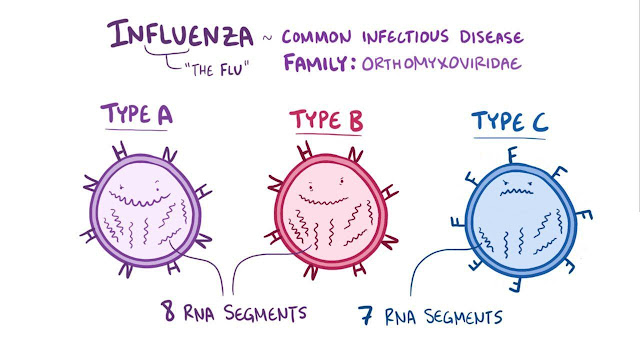Flu Shot Side Effects - Why Flu Vaccine Makes You Feel Sick?
You're going to catch the flu at some point in your life. Most certainly, you've already had bed-ridden days filled with awful daytime television and a clogged respiratory system accompanied by the inability to keep solid food in your stomach. A flu shot may be able to help you avoid these unpleasant symptoms. The flu vaccination should not induce the flu in those who receive it because it contains no live viruses. Some people encounter a few minor side effects, but the flu is far worse, hence vaccination is recommended for the vast majority of people.
1. Mild Fever
A flu vaccine takes 14 days to become completely active. A tiny percentage of vaccination recipients suffer a low-grade fever of 101 degrees or less. It's likely that your immune system is reacting to the vaccine aggressively.
2. Muscle Aches
The flu vaccine is administered intramuscularly, which means that the needle is placed directly into muscle tissue. Muscle cells are injured on a microscopic level as a result of this. Muscle pains in the upper arms or soreness at the injection site occur in 10% to 64% of patients who receive intramuscular injections.
3. Redness, Swelling, and Sore Arms
After receiving the flu vaccine, you may experience increased swelling or redness in your arm, as well as discomfort. This is known as a topical reaction by immunologists. This is a sign that your immune system is in good working order. If you feel severe swelling at the injection site or any facial swelling, get medical assistance right once since you could be allergic to the vaccine.
4. You Shouldn't Get the Flu
The influenza vaccination is the subject of a lot of misinformation. There are no active viruses in the vaccine, so you can't contract the flu from it. This misunderstanding stems from the fact that the majority of people get the flu shot during flu season, when an individual may have already contracted the sickness before receiving the vaccination.
5. Allergic Reaction
It is extremely uncommon for someone to be allergic to the influenza vaccine. Wheezing, trouble breathing, and severe swelling of the mouth and eyes are all symptoms of anaphylaxis, an allergic reaction. Paleness, hives or a rash, an accelerated heartbeat, and general weakness are all symptoms of allergic responses. The symptoms appear between minutes to hours and necessitate medical attention.
6. Types of Flu Virus
Influenza strains create a variety of symptoms and adverse effects. The flu virus is divided into three types: A, B, and C. The type A flu viruses are the most dangerous and cause the greatest harm; they can mutate and outsmart current vaccines. H1N1 or swine influenza The flu virus is a type A virus. A milder variant of influenza, Type B flu, primarily affects youngsters and the elderly. The Type C flu virus is prevalent, and the symptoms are similar to a typical cold.
7. Nausea
It's conceivable that the flu shot will make you feel nauseous or upset your stomach. Immunologists believe that this is because of the body's strong immunological reaction to the vaccine. The immune system is in charge of battling germs such as viruses and bacteria. You may endure discomforts such as nausea and weariness as a result of your vigorous defense.
8. Fainting
Only a small percentage of persons who get the flu vaccine faint or have dizzy episodes. This is more frequently than not due to apprehension about receiving the injection than than the injection itself. Don't worry if you're afraid of being alone; you're not alone. Make sure the medical professional giving you the shot is aware of your condition and that you sit down during and after the injection.
9. Headaches
Many of the influenza vaccine's side effects are signs of your immune system's vitality and strength. The term'regulation' is used by immunologists to describe the body's internal, often microscopic equilibrium that keeps the immune system from destroying useful materials. Headaches, pain, hives, and even a minor fever are all signals that your immune system is responding adequately to the immunization.
10. Small Risk of Guillain-Barre Syndrome
Guillain-Barre Syndrome affects only one or two persons per million who receive the flu vaccine (GBS). During an active flu outbreak, the condition is more likely to emerge than after receiving a flu vaccine shot. 70% of those who catch GBS recover completely, though it might take anything from a few weeks to a few years. GBS causes symptoms such as muscle weakness, numbness, and even paralysis by causing damage to the neurological system. There is no evidence that the condition is linked to the nasal flu vaccine.


















Post a Comment